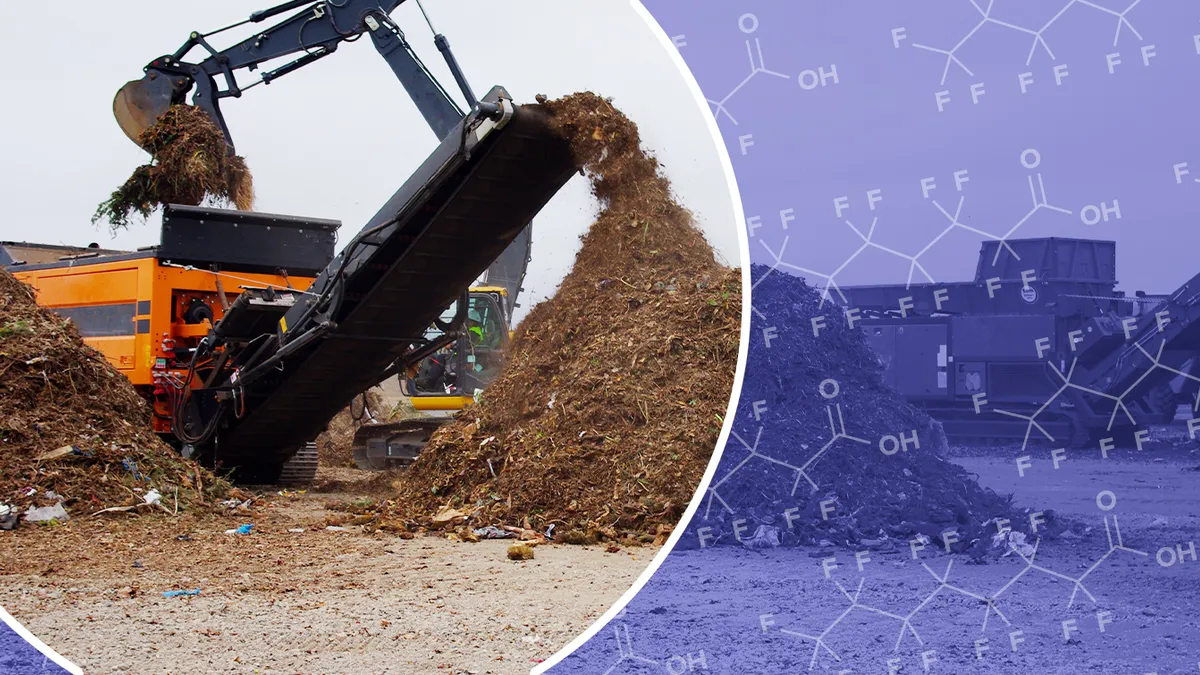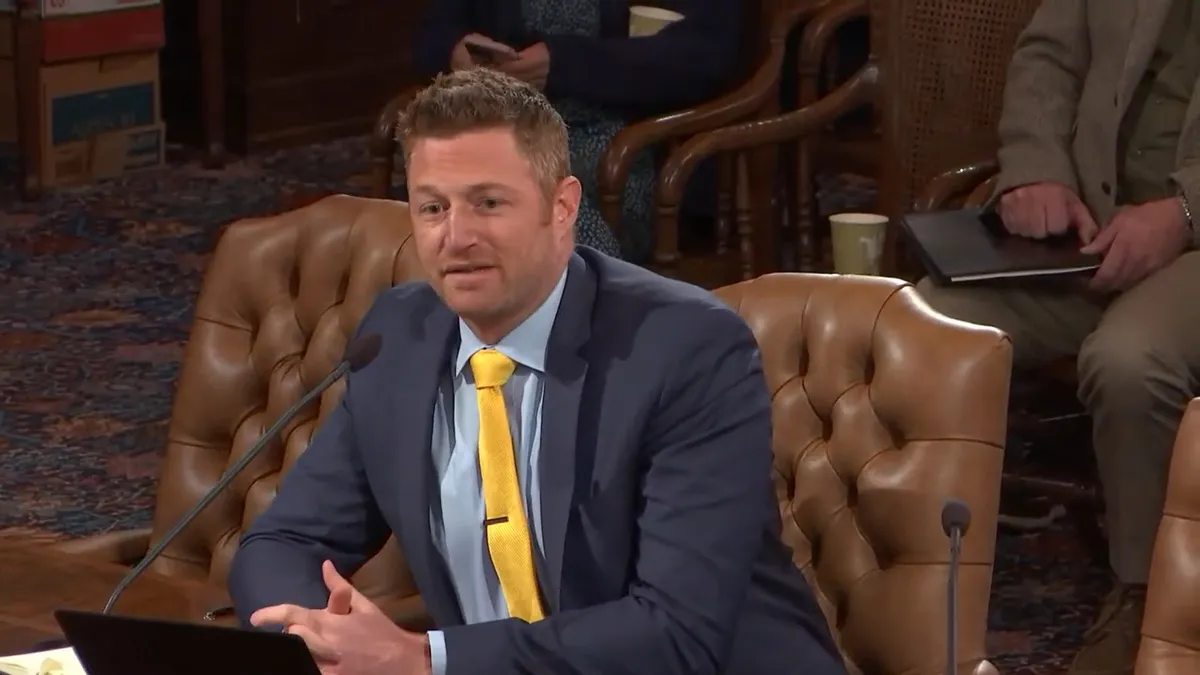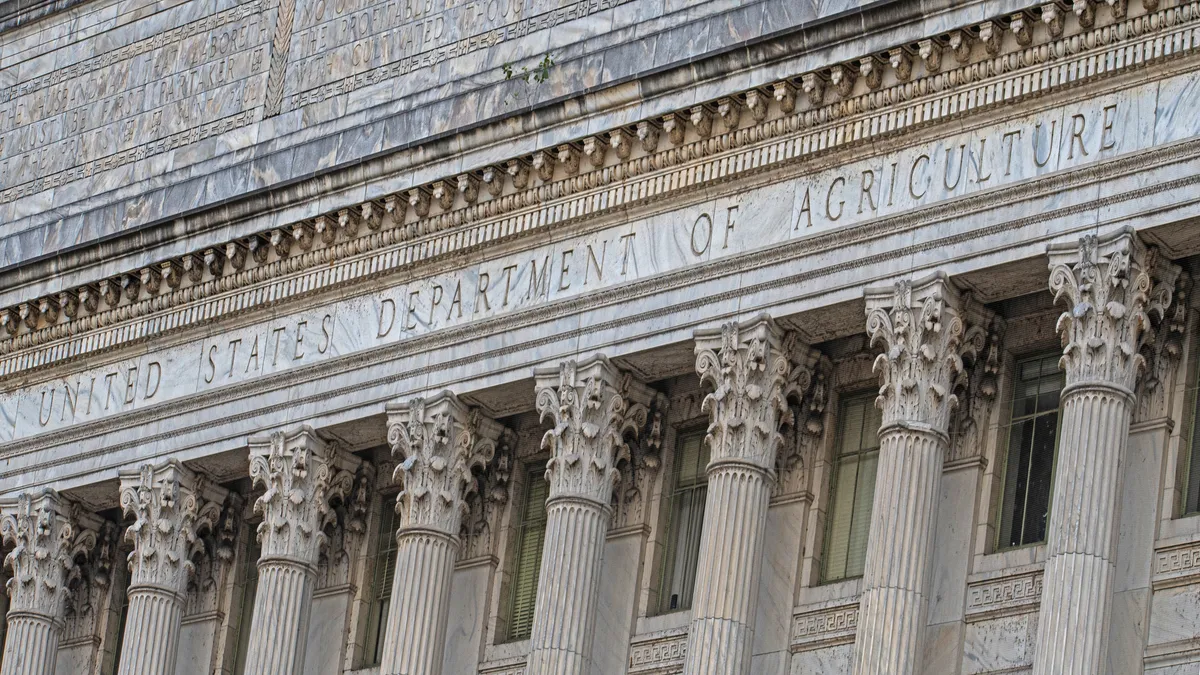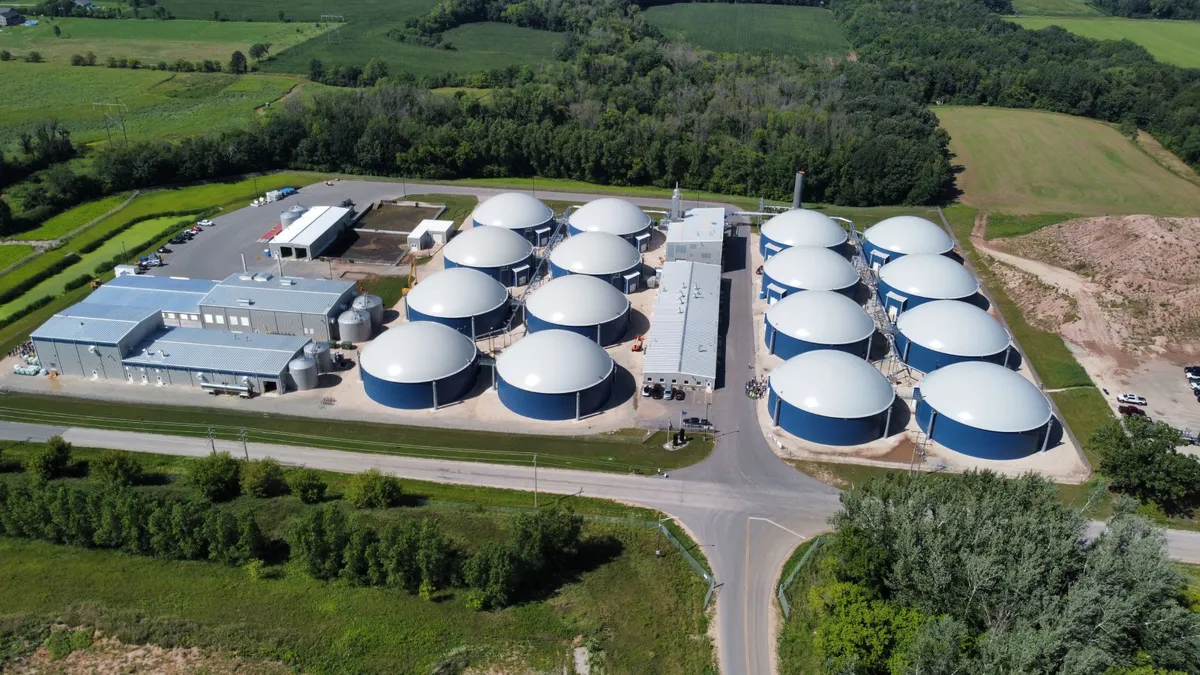As the U.S. EPA works to roll out anticipated regulations for PFAS, the U.S. Composting Council is among the stakeholders wondering what future rules could mean for their industry — and composters’ liability.
USCC recently published a position paper on regulations related to per- and polyfluoroalkyl substances, calling for state and federal entities to focus efforts on scientific studies instead of rushing to pass “unsound policies” that could be detrimental to the composting industry.
The position paper comes as the EPA is expected to designate two chemicals, PFOS and PFOA, as hazardous substances under the Comprehensive Environmental Response, Compensation and Liability Act, known as the Superfund law. Composters, along with landfill and MRF operators, worry about how the designation could hold them responsible for expensive PFAS cleanup or even lawsuits. A recent state PFAS law in Maine prohibiting the land application of biosolids and the sale of compost containing biosolids has also caused industry concern.
“Legislation and regulation aimed at curbing PFAS/PFOS could significantly jeopardize the composting industry, resulting in job losses at thousands of public and private composting operations throughout the country,” the position paper states. USCC says it could also cause more compost to end up in landfills and incinerators and raise overall operating costs.
Frank Franciosi, executive director of the U.S. Composting Council, talked with Waste Dive about what roles packaging producers, federal agencies and states could play to mitigate PFAS effects.
This conversation has been edited for length and clarity.
The USCC put out its position paper a few weeks ago. Why put this together now? What factors in the regulatory landscape are particularly pressing to the composting industry?
There are a lot of unknowns, but we’re having to react. We are passive receivers. We didn't create any of these [PFAS-containing] products, they are created by manufacturers. So it's really hard to say to an industry that “if you take these materials, you're basically creating a Superfund site.” That’s what a possible CERCLA designation could mean, and that is pretty scary. We either have no control of the materials we take in, or maybe you’re a farm and your field gets flooded by water with PFAS. Does that make you a Superfund site?
There are a lot of different organics [processors]. Some are specific biosolids facilities that compost biosolids, along with yard waste. There are ones that just handle yard waste, or just food scraps. All of those could possibly have PFAS, unknowingly, and at different levels depending on where you are. We need more information. We’re also part of a coalition of passive receivers, and that also includes people from the landfill side, the biosolids side, the municipal side and composting side.
USCC’s position is that more research needs to be done before enacting laws that could affect the industry. In your view, what unknowns need to be clarified?
There's not enough research data on the health risks to determine what PFAS levels should be in biosolids. There's also not enough labs in the country to handle the amount of testing that needs to be done, and the accuracy of these tests could be skewed by contamination.
EPA recently established [a drinking water advisory] which is an extremely low level, as it should be. But this has led to some states having knee-jerk reactions, like Maine’s recent law, where now you can’t compost biosolids. There’s an added cost to treat the material so it can be accepted at landfills instead.
We want EPA to do the right testing and do the right health risk assessments. And we want the U.S. Department of Agriculture to do some case studies. We want to see plant uptake studies to determine what that might look like if PFAS is in compost and it is applied on crops. What’s the total amount of uptake, and how detrimental is that? We also want to know what the background level in the soil is, or in the water at that particular farm.
We don't want anybody to create any kind of panic unless they have the scientific data because you can't regulate something without it. However, what we’re asking for, that's a really big study, and it's not one that you can do in one year. It's probably a three- or four-year study.
USCC has been pretty clear about not wanting to enact new rules or laws without the science to back it up, but waiting a few years for more information is also kind of a tough spot to be in. Are there any compromises or interim steps you’d want to see in the meantime?
Well, I certainly want to see all PFAS dealt with upstream first. Then I'd like to see what can be done on remediation. The term “forever chemicals'' is kind of a misnomer. It will break down, but it doesn't break down easily.
On the USDA side, we have all these great land-grant universities. The farm bill [reauthorization] is coming up in 2023, and we recommend they carve out funding for uptake studies at these universities.
We were on the Hill last week, and we spoke to people about this on [committees] for environment and public works, as well as [agriculture] and forestry on both the House and Senate side. The common thread is that we’re like the thousandth person who has walked into their office and mentioned our concerns [about PFAS]. Both on the Republican and Democrat side, they recognize this is a problem, so we hope that can help make progress.
It sounds like since you're pretty active at the capital. Are we going to see federal legislation introduced on these things in 2023 or beyond?
Hopefully there'll at least be some hearings. We just want to make sure that, just like the waste industry is represented in recent hearings, we as the compost industry want to be represented. We handle a lot of different feedstocks, and there’s municipalities that handle drinking water residuals and wastewater residuals.
Ultimately, we want solutions based on science, not based on an irate call to a senator and something gets written because they're the biggest donor. The EPA has always been good about doing stuff based on science. We want them to stick to that track record.
You’ve mentioned that you think Maine’s recent PFAS law had a detrimental effect on composters. What do you think about other recent PFAS laws, such as ones limiting PFAS in packaging? New York’s law will go into effect Dec. 31, and other states will enact similar laws next year.
That would definitely help take care of the issue of PFAS in food scraps. Big companies like McDonald’s are saying they want to get rid of PFAS, like in McDonald's hamburger wrappers and things. Going upstream and getting rid of all the sources where this comes in is effective. People also need to go back to all their suppliers and say, “I want to see the data sheet on how this product has been made. What chemicals are in there?”
This isn’t the first time we’ve dealt with contamination as an industry. A couple years ago, we were dealing with persistent herbicides, which has since died down. PFAS is just the latest issue, and it’s important that we keep an eye on it, and we’re gearing up for whatever is to come next year. It’s a big problem, and there’s no easy answer.























